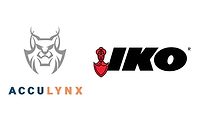Technology News
MIT, Mecalux Team Up to Integrate AI into Logistics
Study focuses on improving order fulfillments and autonomous warehouse robots

Photo courtesy of Mecalux.
Roofing distributors looking to enhance their logistics operations may soon be able to turn to artificial intelligence and robots thanks to the combined efforts of the Massachusetts Institute of Technology Center for Transportation & Logistics and intralogistics group Mecalux.
The two institutions kicked off a five-year collaborative project to expedite the integration of self-learning AI in logistics. Through MIT’s Intelligent Logistics Systems Lab, the two will explore new applications of AI models with significant potential for businesses and society.
“The objective of our collaboration with Mecalux is to foster disruptive innovation and achieve two highly impactful use cases where AI transforms industry decision-making," says Dr. Matthias Winkenbach, director of research at MIT CTL and the Intelligent Logistics Systems Lab. "We will train complex self-learning machine learning models to ultimately reduce costs, lower carbon footprints, and improve service quality for customers."
In the first year of this project, the teams at the Intelligent Logistics Systems Lab and Mecalux will develop two key research areas to accelerate innovation. The first will focus on increasing the productivity of autonomous warehouse robots. Using advanced simulation, optimization, and machine learning techniques, researchers will develop a “swarm intelligence” system enabling multiple robots to operate as a single entity, making collective decisions.
“We aim to create a new generation of autonomous robots that learn from human behavior to foster greater collaboration and efficiency in warehouses,” says Winkenbach.
The second research area will center on training self-learning AI models. The Intelligent Logistics Systems Lab will design systems capable of learning from demand patterns and anticipating new customer purchasing habits.
“Current distribution systems fail to account for the full complexity of logistics networks and often make strong simplifying assumptions. This project seeks to help companies operating large networks of warehouses, distribution centers, and stores automatically determine the most efficient way to fulfill each order taking into account the real-time status of the distribution network,” says Winkenbach.
The research partnership between MIT CTL and Mecalux is aimed at helping logistics experts, warehouse staff and carriers perform their jobs with maximum precision.
“Having contributed to founding MIT’s Intelligent Logistics Systems Lab, Mecalux has leveraged its practical expertise in warehousing and its software and automation experts to support MIT’s research," said Javier Carrillo, CEO of warehouse technology company Mecalux. "The goal is to transform companies’ logistics operations to achieve greater efficiency."
Looking for a reprint of this article?
From high-res PDFs to custom plaques, order your copy today!








